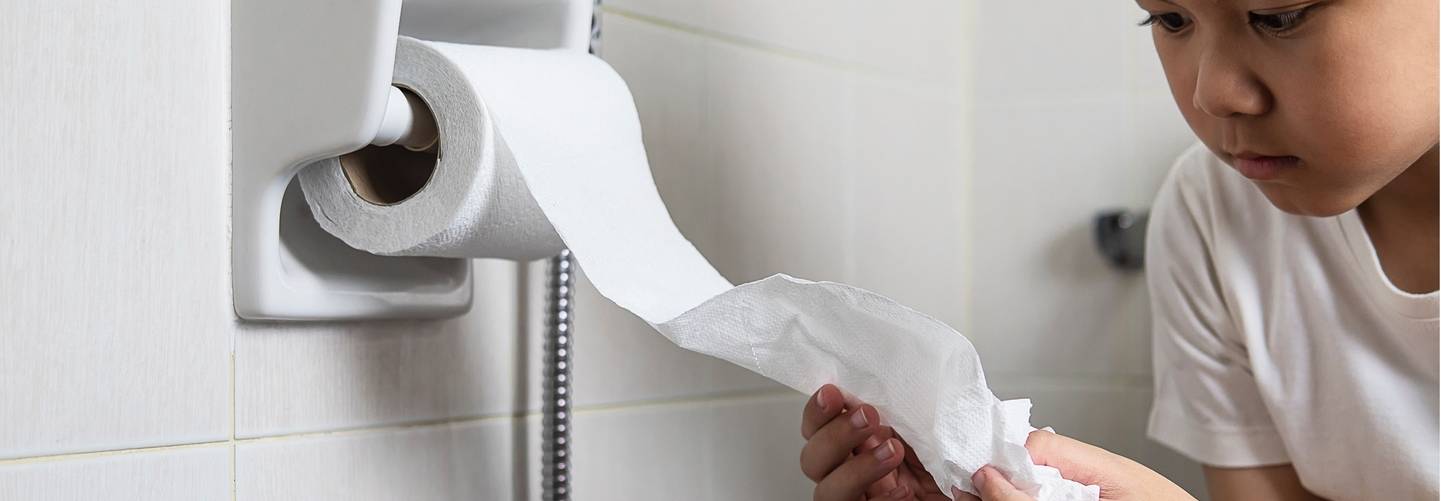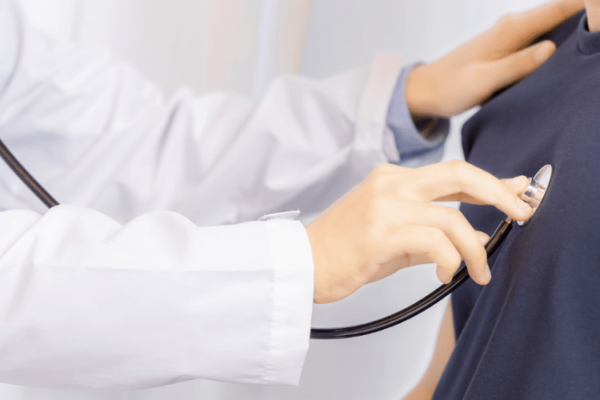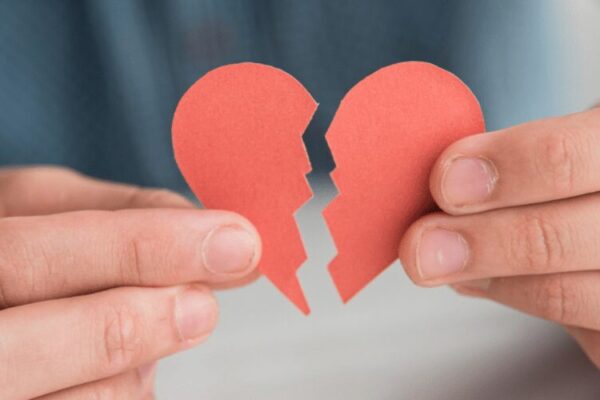
28 Aug Common causes of abdominal pain
Common causes of abdominal pain
By Island Hospital | Aug 28, 2020 4:29:29 PM
Even though it’s often called a stomach ache, the term abdominal pain is often used instead because the cause of the pain may not originate from the stomach. The digestive system is home to our liver, gall bladder, intestines and stomach; a condition involving any of these could be a cause of abdominal pain.
To make matters more complicated, there is a lot of information on the internet that can be difficult to filter out. A person searching for “my stomach hurts a lot” or “why is there blood in my poop” may end up visiting websites telling them that they have cancer and cause them to over-think.
Which then begs the question, what are some non-dangerous causes of abdominal pain? How do I know whether the pain in my stomach is just a minor condition, or a potentially serious one?
Pain is the body’s way of telling the brain that something is wrong. Most of the time, the stomach pain we experience is the result of something benign and nothing to worry about. Some examples of common non-dangerous causes of abdominal pain are:
Gas – When gas builds up in the stomach, the body responds by sending signals to the brain such as stomach pain or causing your stomach to feel bloated. Gas forms in the stomach when certain foods are broken down by stomach bacteria to release hydrogen, carbon dioxide and methane gas. Belching (burping) or flatulence (farting) is how our body expels the excess gas in our stomachs.
Gas can also accumulate when you swallow excess air while eating or drinking; this happens when you eat/drink too fast, talk while eating or drink carbonated beverages. As theas builds up inside your stomach, you may experience bloating, a feeling of fullness, discomfort and even pain; these symptoms last until your body expels the gas (through belching or flatulence).
Constipation & fecal impaction – When bowel movements decrease and a person experiences difficulty passing stools, fecal waste builds up in the large intestine. This build-up can cause gas, bloating and pain in the stomach, while severe cases of constipation can develop into a condition called fecal impaction. Fecal impaction is a bulk of feces that gathers in the rectum as a result of chronic constipation, physical inactivity, lack of fibre, lack of water or a habit of holding in bowel movements. Severe cases of constipation can cause cramp-like pain in the lower abdominal area and nausea/vomiting, because the body is trying to move waste out of the body but is unable to. The discomfort caused by constipation subsides after a bowel movement, but a lingering feeling of discomfort may indicate that not all of the waste has been expelled from the body.
Constipation can be relieved with laxatives and consuming more fibre as part of your diet. However, if the pain does not subside after going to the toilet or constipation occurs frequently throughout the week, it is better to schedule an appointment with a doctor to figure out the cause of your constipation.
Menstrual cramps – Most women experience pain in their lower abdomen when menstrual cramps occur, which may also be accompanied by nausea and vomiting. Each person experiences a different level of pain; some may have mild abdominal pain while others have more severe cramps.
Take note of the pain you feel during menstrual cramps and the duration of the pain. Pain that lasts for days and interferes with your daily life should be discussed with a doctor and not dismissed as “just another menstrual cramp”. This is especially true if your menstrual cramps grow in intensity compared to previous cramps and you also develop dizziness or change in bowel habits.
Muscle pain – An overstretched muscle (also known as a muscle strain or pulled muscle) is also a common cause of abdominal pain that occurs in individuals that frequent the gym or exercise a lot. A pulled or torn abdominal muscle can present itself as a sudden, intense pain that makes it hard for the individual to move their body without hurting it. It is not uncommon for individuals to visit a doctor over abdominal pain only to find out that the cause of their pain is not a digestive disorder, but pain in the abdominal muscles.
Irritable Bowel Syndrome (IBS) – Individuals with irritable bowel syndrome often experience abdominal pain/discomfort along with a combination of constipation and diarrhoea. The signals between the stomach and brain are poorly coordinated in IBS patients, resulting in a hypersensitive body that overreacts with stronger abdominal pain than usual.
The symptoms of IBS (stomach pain, alternating bouts of constipation and diarrhoea) can be aggravated with trigger foods and stress, which can cause frustration in your daily life as you suffer from frequent abdominal pain throughout the week or month without knowing what your triggers are. Even though patients with IBS experience a stronger pain and alternating bouts of diarrhoea and constipation, IBS is not a serious condition and can be managed with help from a doctor. Work together with a gastroenterologist to discover whether you have IBS, and if you do; figure out what triggers your symptoms so you can avoid those triggers and live a life with minimal stomach discomfort. More detailed information on IBS (Irritable Bowel Syndrome) can be found here: https://islandhospital.com/2020/08/24/ibs-vs-ibd-knowing-the-difference/
Apart from the non-dangerous causes of abdominal pain, there are also digestive disorders that can cause complications and lead to very severe consequences if left untreated. The symptoms for these disorders are often recurring and distinct, making it easier to distinguish a sign of danger and a non-dangerous onset of stomach pain.
The following health conditions are not as common as the ones stated above and thus may not be the cause of your stomach pain, but it is good to recognise the signs and symptoms of these conditions so that you are armed with information to make informed decisions when these conditions do occur.
Gallstones – The formation of stones in the gallbladder may trigger pain and discomfort in the upper abdomen area, close to the middle or right side of the abdomen. The pain caused by gallstones is often confused with regular gastric pain by both patients and doctors as gallstones do not cause problems in most patients.
Gallstones do not cause problems most of the time and are left alone. However, when pain and complications arise then the doctor will perform a gastroscopy by passing a camera on a tube into the stomach to check for gastritis first. If there are no signs of gastritis, then it is ruled out as a source of pain. The next step is to scan the gallbladder for gallstones and identify the source of the patient’s pain to treat the symptoms. Treatment for gallstones usually results in the removal of the gallbladder or medications to dissolve gallstones.
Gastroenteritis – Also known as the ‘stomach flu’, gastroenteritis causes the stomach to become inflamed and irritated; leading to abdominal discomfort, diarrhoea, vomiting, nausea and fever.
The frequent diarrhoea / vomiting causes dehydration; observable through the symptoms of dry skin and dry mouth. This is an important sign to look out for in younger patients as children and babies can be infected with gastroenteritis. When the young ones start experiencing frequent diarrhoea and show signs of dehydration, seek medical help immediately so that appropriate treatment can be provided. Gastroenteritis can cause severe complications if left untreated for too long.
As gastroenteritis is a viral disease, it is recommended for individuals with the condition to stay at home after seeing a doctor for treatment. Like most viral infections, gastroenteritis can be avoided by practising good hygiene, such as proper hand-washing, sanitising high-touch areas and getting vaccinations for children.
Acid Reflux & Gastroesophageal Reflux Disease (GERD) – Acid reflux (also known as heartburn) produces a burning sensation in the lower chest area, close to the upper abdomen. This occurs when the muscle preventing the backflow (reflux) of acid does not close properly, allowing the acid to flow back up into the esophagus and cause the burning sensation.
If acid reflux occurs more than twice in one week, then it is diagnosed as Gastroesophagael Reflux Disease (GERD). The frequent reflux of acid will eventually damage the esophagus, and in some cases; the acid can reach the lungs or vocal cords. Acid reflux can lead to the formation of ulcers in the esophagus and stomach, which causes the feeling of burning pain in the upper abdomen and may lead to complications such as bleeding and intense stomach pain.
Seek a doctor for consultation if you experience a burning sensation in your lower chest area after eating, especially if the burning pain repeats itself over the course of a week. An early diagnosis is crucial to help you learn how you can manage your condition and avoid any serious complications. To read more about Gastroesophagael Reflux Disease (GERD), click here: #
Inflammatory Bowel Disease (IBD) – Often confused with irritable bowel syndrome (IBS), inflammatory bowel disease (IBD) is a chronic disorder associated with abdominal pain, diarrhoea and bleeding. IBD patients often experience severe stomach pain/cramps accompanied by an increased urgency to go to the toilet, fever, loss of appetite and iron deficiency anemia due to loss of blood.
As IBD is a chronic disorder, there will be times where the symptoms flare up to cause pain, followed by a time of remission and you return to good health. Even so, one should not dismiss IBD just because their symptoms have stopped occurring for a while. The inflammation caused by IBD will damage the affected areas of the digestive system as time goes on, which may cause the symptoms to worsen and lead to serious complications such as colon cancer.
If you experience severe stomach cramps, diarrhoea, bleeding when passing stools, a feeling of weakness and fatigue (due to loss of blood) or fever; then you may be suffering from inflammation in your digestive system. It is recommended to consult a doctor first and explain your symptoms to them so that you can put any doubts to rest and take the right steps to treat your condition.
More detailed information on Inflammatory Bowel Disease (IBD) can be found here: https://islandhospital.com/2020/08/24/ibs-vs-ibd-knowing-the-difference/
Appendicitis – This condition occurs when the appendix is inflamed; causing pain in the lower right side of the abdomen. The pain caused by appendicitis is often sudden at first and gradually grows in intensity, worsening when you perform certain movements such as walking, coughing or raising your right leg.
Usually when the pain begins, it does not subside and gradually increases within the first 24 to 48 hours. During that time it is crucial to consult a doctor as the inflamed appendix may rupture and spread infection inside the abdomen; which can be life-threatening. If you experience a sharp pain around the lower right side of the abdomen that does not subside after several hours, seek treatment immediately.
While not every case of abdominal pain demands a visit to the clinic, it is also not recommended to dismiss signs and symptoms of stomach conditions until it is too late. When considering whether you should see a doctor for your stomach pain or not, consider two factors: intensity and frequency.
Pain that continues to grow in intensity to the point it interferes with your work and daily life should be brought to consultation with a doctor. If the pain is not always intense but occurs frequently (the same symptoms occur every few days or weeks), then it is also good to consult a doctor to check for any potential diseases or infections too.
Apart from monitoring the intensity and frequency of stomach pain, it may help you to take note of the following symptoms. See a doctor if you experience one or a combination of any of the following:
- Blood is present in your urine or stool.
- The pain in your stomach is severe and debilitating.
- Fever is present alongside abdominal pain.
- A burning sensation in your lower chest area occurs more than twice in one week.
- Constipation or diarrhoea that lasts for several days.
- Your bowel habits change between constipation and diarrhoea every now and then.
- Recurring abdominal pain, constipation or diarrhoea every few weeks or days.
- The pain intensifies and your condition does not improve despite medication and treatment.
Of course, there are numerous other possible causes of abdominal pain that are not listed in this blog. Sports injuries, poor eating habits and food poisoning are factors that may cause pain in your abdomen too.
How do I determine the cause of abdominal pain?
Diagnosing the actual cause of your abdominal pain is something for your doctor to do, but it can be helpful for you to narrow down the possibilities and prepare to answer any questions the doctor will ask by taking note of a few things:
- Does the pain take place in the morning or night?
- Where is the pain located in the abdomen?
- Does the pain branch out to affect other parts of the body?
- Does any activity you do relieve or aggravate the pain?
- How long does the pain last?
- Does the pain occur after eating certain foods?
Take note of such details and do not be afraid to inform your doctor, as you would know your own body and stomach best.
Is blood in the stool an early indication of stomach cancer?Blood in your stool can be an alarming sign, but it may not necessarily mean that you have cancer. Fresh red blood indicates bleeding in the lower digestive tract or the rectum, of which hemorrhoids are known to be a common cause of such bleeding. Bleeding in the upper digestive tract will have caused the blood to mix with the stool and turn it into a dark colour like tar.
There is no need to jump to the conclusion that bleeding indicates cancer in the digestive system of any kind, but bleeding should also not be dismissed so easily. As with all digestive concerns, take note of what food you eat and if anything different has happened in your daily life that may cause bleeding. Consult a doctor rather than the internet to get a proper diagnosis and receive appropriate medical treatment.
Can stress affect my stomach?
The short answer is yes.
The relationship between the stomach and the brain is a complex one, both organs send and receive signals back-and-forth all the time. Some people experience pain, bloating, constipation or diarrhoea when they are stressed, this is known to be true for patients with IBS.
Stress is not a common cause of stomach pain, but rather a factor that can lead to poor eating habits that result in digestive issues. Rather than being the main culprit, think of stress as the sidekick that can make digestive issues more difficult to manage. That is why stress management can be a part of treatment for patients with digestive disorders and IBS.
Will spicy food increase my risk of cancer or digestive problems?
It has yet to be confirmed whether spicy food increases the risk of cancer or digestive problems. Previously it was believed that eating spicy food would cause peptic ulcers or gastroesophageal reflux disease (GERD), but that is not true. Peptic ulcers are caused by bacteria and overuse of nonsteroidal anti-inflammatory drugs, while all kinds of food can cause reflux.
However, some people experience aggravated symptoms of bloating, diarrhoea, and heartburn due to increased stomach sensitivity or IBS. As such, the best approach is to observe the way your body reacts to spicy food and avoid it if it causes symptoms to occur more frequently. As the saying goes, practise moderation in everything, including eating spicy food. Figure out what triggers your symptoms so you can avoid those triggers and live a life with minimal stomach discomfort.
More detailed information on IBS (Irritable Bowel Syndrome) can be found here: https://islandhospital.com/2020/08/24/ibs-vs-ibd-knowing-the-difference/







